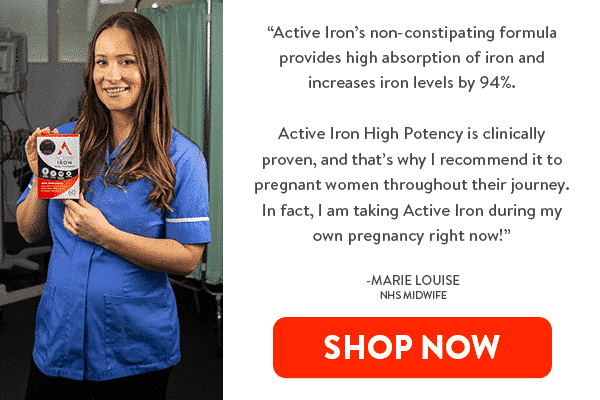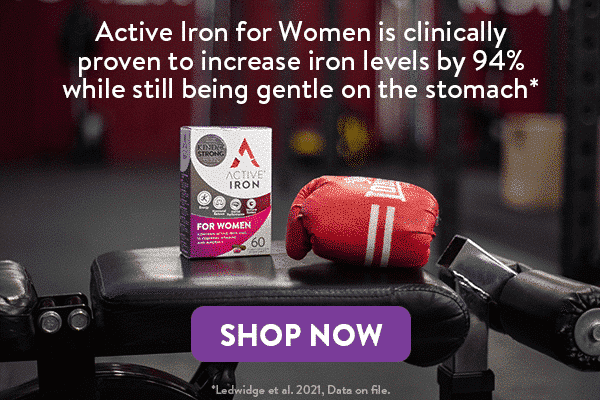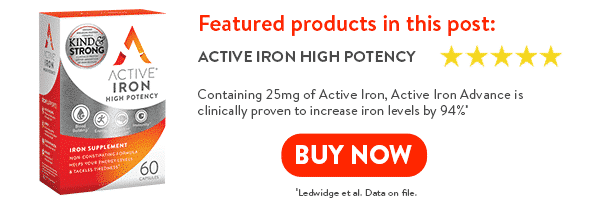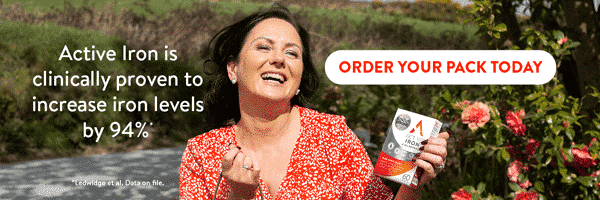BEST IRON SUPPLEMENT FOR PREGNANCY
If you are looking to find out the best iron supplement to take while pregnant, then you have come to the right place. In this article we’ll cover:

How much iron does a pregnant woman need?
There is an increased need for iron when pregnant. During this time, the amount of blood in your body increases by 30-50%. This increases the requirement for iron in your body as it’s needed to make hemoglobin, which carries oxygen to other cells in your body.
Research shows that many women do not have sufficient iron in their diet to meet their daily needs. This is also true during pregnancy, especially during the second and third trimesters when dietary iron requirements can increase to as much as 30mg per day.
Avoiding low iron in pregnancy
There are two types of iron found in the diet, non-heme and heme. Non-heme iron is found in plants, nuts and legumes. This is absorbed at a much lower rate than heme iron, which is found in animal products such as meat, especially red meat.
It’s important to remember that even if you are making a conscious effort to ingest more heme iron, by eating meat, most health authorities recommend a safe upper intake of only 500g of red meat per week. Also, other daily habits like drinking tea and coffee after your meals can reduce iron absorption and reduce your iron intake.
You can get iron from food, but it may not be absorbed well, and it may not be sufficient to meet your increased requirements during pregnancy.
Iron supplements could benefit pregnant women who are unable to meet their dietary iron requirements. However, food supplements are not a substitute for a varied diet and a healthy lifestyle.

Iron is an essential mineral and this applies even more so to pregnant women. Click here to check out the Active Iron store. Active Iron is highly absorbed compared to other iron supplements, making it strong enough to increase iron levels whilst being gentle on the stomach.¹
Iron Supplements in pregnancy
There are many iron supplements available over the counter. Ferrous sulfate is considered the ‘gold standard’ and is the most commonly recommended form of iron in the UK and Ireland.
Although iron absorption occurs mainly in the small intestine, traditional iron supplements dissolve in the stomach. This can lead to side effects including constipation, heartburn, and nausea.
Active Iron has a unique non-constipating formula that helps reduce gut irritation from iron. Formulated by scientists, Active Iron is clinically proven to increase iron levels while being gentle on the stomach.²

The Best Iron Supplements for pregnant women
Active Iron has a range of iron supplements that are suitable for preconception, during pregnancy, and postnatally.
Active Iron High Potency
Active Iron High Potency is clinically proven to help prevent gut irritation and increase iron levels by 94%², meaning it is kind on your stomach yet strong on absorption.
Active Iron High Potency Review
“As a busy full time working mom, sonographer, daughter, entrepreneur sometimes my diet lacks things that help support my iron levels. So glad I was able to try these and fall in love with the benefits!!” -Kimberly H
Review source

Active Iron For Women
Active Iron for Women Review
“This is the first iron supplement that delivered what was promised.
Not even a hint of stomach upset and including the multi is ingenious.
I don’t dread lab work since taking this daily supplement.” -Amazon Customer
Review source

Pregnancy Iron Supplements FAQ’s:
What is the best iron supplement for pregnancy without constipation?
Active Iron is clinically proven to help avoid common iron side effects such as constipation, nausea, and diarrhoea².
What are the best over the counter iron supplements for pregnancy?
Active Iron can be considered to be one of the best over the counter iron supplements you can take during pregnancy because it is clinically proven to increase iron levels whilst helping to avoid common side effects such as nausea and constipation².
Are there any side effects from taking iron supplements in pregnancy?
While common iron supplement side effects can include nausea, constipation, diarrhoea, Active Iron is clinically proven to help avoid these side effects as it is highly absorbed.
What are the benefits of taking iron supplements when pregnant?
Iron intake plays a vital role in supporting a healthy pregnancy for both mum and baby but may also lead women to having more enjoyable pregnancies in general, by helping to reduce symptoms such as tiredness and fatigue.

————————————————————————————————————————–
¹NICE. Anaemia – iron deficiency. September 2018
²Tolkien et al. PLoS ONE 2015; 10(2): e0117383. doi:10.1371/journal.pone.01173832015.
³Ledwidge et al. 2021, Data on file. doi: https://doi.org/10.1101/2021.09.01.21262983
⁴Pereira D et al BMC Gastroenterol 2014 Jun 4;14:103. doi: 10.1186/1471-230X-14-103
⁵Wang et al. 2017, Acta Haematologica, 138: 223-232.








